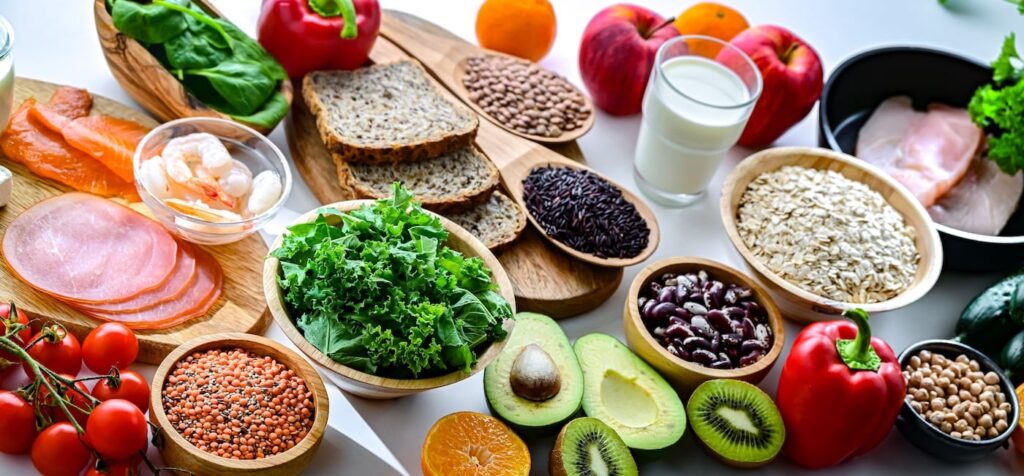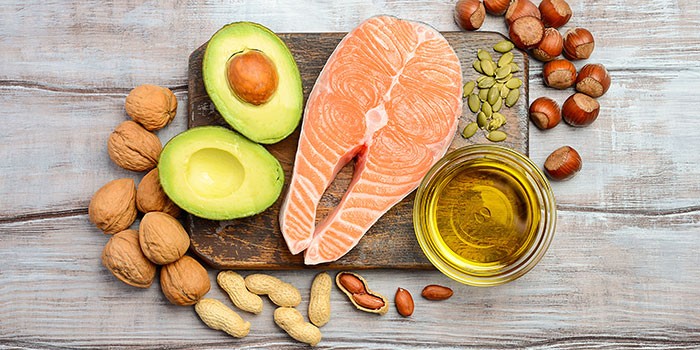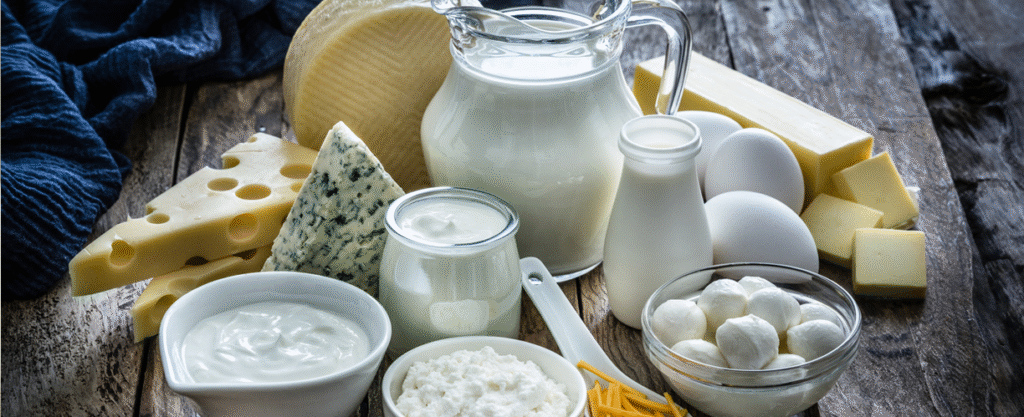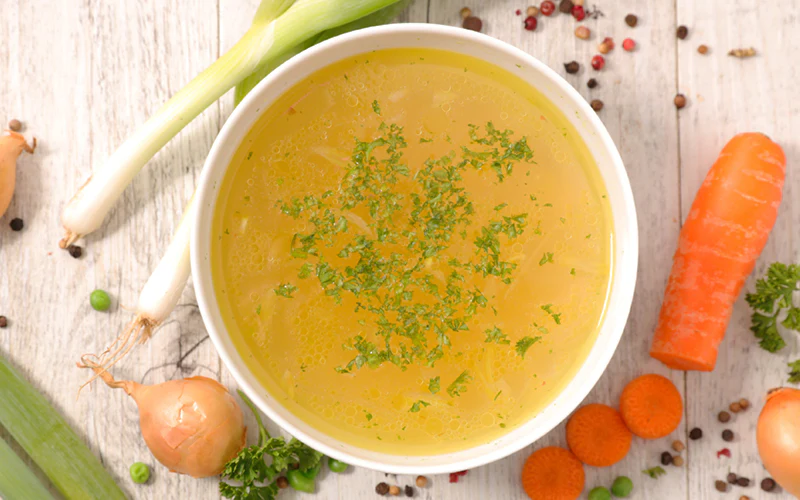
A joint-healthy diet focuses on foods that reduce inflammation, strengthen bones, and protect cartilage, helping ease pain and improve mobility. It emphasizes omega-3-rich fish, colorful fruits, leafy greens, nuts, whole grains, olive oil, and anti-inflammatory spices like turmeric and ginger while avoiding processed and fried foods.
Key Takeaways
- Omega-3s from fatty fish and seeds lower joint inflammation and stiffness.
- Fruits, greens, and cruciferous vegetables supply antioxidants for cartilage protection.
- Olive and avocado oils support joint lubrication and reduce inflammatory pathways.
- Beans, fermented dairy, and bone broth strengthen cartilage and aid flexibility.
- Turmeric, ginger, and green tea naturally combat swelling and pain.
- Processed snacks, refined carbs, and red meats worsen inflammation and should be limited.
Why Your Diet Matters for Joint Health
Your dietary choices directly influence inflammation levels and joint health, making nutrition a key factor in preventing and managing joint pain.
- Your diet directly affects inflammation levels in the body, which is a major driver of joint pain and arthritis.
- Nutrients like omega-3 fatty acids (found in fatty fish and flaxseeds) help reduce joint swelling and stiffness by lowering inflammation.
- Antioxidants from fruits and vegetables protect joint tissues from oxidative damage that can worsen joint conditions.
- Calcium and vitamin D support strong bones, which are essential for stable, healthy joints.
- Collagen or supplements, helps maintain cartilage integrity and joint cushioning.
- Diets high in processed foods, added sugar, and unhealthy fats can increase inflammation and aggravate joint problems.
- A balanced diet modelled on the Mediterranean style rich in fish, leafy greens, nuts, whole grains, and anti-inflammatory spices like turmeric is beneficial for joint comfort and function.
- Maintaining a healthy weight with appropriate nutrition reduces mechanical stress on weight-bearing joints, preventing pain and damage.
Understanding the Joint-Healthy Diet
A joint-healthy diet emphasizes whole, unprocessed foods rich in omega-3 fatty acids, antioxidants, lean proteins, vitamins, and minerals that reduce inflammation and support bone and cartilage health. Incorporating plenty of fruits, vegetables, fish, nuts, seeds, whole grains, and anti-inflammatory spices like turmeric, while minimizing processed foods and known inflammatory triggers, can help maintain joint comfort, improve mobility, and possibly slow the progression of joint diseases.
This dietary approach is often aligned with the Mediterranean diet pattern, providing a balanced, flavorful plan that supports overall health alongside joint-specific benefits. Combined with regular physical activity and healthy lifestyle habits, it forms a cornerstone of joint pain prevention and management.
The 10 Best Foods for Joint Health to reduce pain
Including these foods in your meals can support joint health, ease pain, and improve flexibility. Each food works differently, so variety is important.

1. Fatty Fish (Salmon, Mackerel, Sardines, Herring)
Fatty fish are among the most powerful foods for joint health. They are high in omega-3 fatty acids, which have been shown to reduce inflammation and ease joint pain, especially in people with arthritis. Eating fish like salmon, mackerel, sardines, and herring just two to three times a week can lower swelling and stiffness in the joints.
- Omega-3s help block inflammatory pathways in the body
- Regular intake can reduce the need for pain medication in some people
- Supports cartilage protection and overall joint mobility
Try to grill, bake, or steam these fish to keep the healthy fats intact.
2. Nuts and Seeds (Walnuts, Almonds, Flaxseeds, Chia Seeds)
Nuts and seeds provide plant-based omega-3s and antioxidants that can help control inflammation and protect joint tissue. They are also a good source of magnesium, which plays a role in bone strength and reducing muscle tension.
- Walnuts, flaxseeds, and chia seeds contain alpha-linolenic acid, a plant omega-3
- Almonds and other nuts offer vitamin E, which helps fight cell damage
- Easy to add to yogurt, salads, or as a snack
Aim for a small handful (about 1 ounce) each day.
3. Extra-Virgin Olive Oil and Avocado Oil
These oils are rich in healthy fats, particularly oleocanthal in olive oil, which acts similarly to some pain relief medicines by blocking inflammation. Swapping out butter or processed oils for extra-virgin olive oil or avocado oil can make a difference in how your joints feel.
- Oleocanthal helps interrupt the process that leads to inflammation
- Avocado oil is also high in vitamin E and supports joint lubrication
- Great for salad dressings or light sautéing
Use these oils daily in cooking or as a finishing touch to vegetables.
4. Colorful Fruits (Berries, Cherries, Citrus)
Brightly colored fruits, especially berries and cherries, are packed with antioxidants and compounds that lower inflammation. These fruits are also rich in vitamin C, which your body needs to produce collagen for healthy cartilage.
- Berries contain anthocyanins that specifically reduce joint swelling
- Tart cherries have been linked to fewer flare-ups in people with gout
- Citrus fruits provide vitamin C, supporting cartilage repair
Include two servings of colorful fruits each day.
5. Leafy Greens and Cruciferous Vegetables (Spinach, Kale, Broccoli)
Vegetables like spinach, kale, and broccoli offer powerful antioxidants, fiber, and important vitamins like K and C. Broccoli, in particular, contains sulforaphane, a compound shown to block enzymes linked to joint damage.
- Vitamin K helps maintain bone strength
- Sulforaphane in broccoli helps prevent cartilage breakdown
- These greens also deliver calcium and fiber for overall joint and bone health
Add leafy greens to smoothies, omelets, or as a base for salads.
6. Herbs and Spices (Turmeric, Ginger, Garlic, Onions)
Certain herbs and spices do more than add flavor. Turmeric and ginger are especially well-known for their strong anti-inflammatory effects. Garlic and onions provide sulfur compounds that may support cartilage and reduce swelling.
- Curcumin in turmeric targets inflammation and pain
- Ginger may block the formation of certain inflammatory substances
- Garlic supports the body’s ability to repair damaged tissue
Use fresh or ground forms in soups, stews, or teas for best effect.
7. Legumes and Beans (Lentils, Chickpeas, Edamame)
Beans and lentils are great plant-based sources of protein and fiber. They contain polyphenols and minerals that help reduce inflammation and feed the healthy bacteria in your gut, which plays a role in joint health.
- Fiber helps lower C-reactive protein, a marker of inflammation
- Edamame offers soy isoflavones, which may help protect cartilage
- Beans can be used in salads, stews, and dips
Aim for at least two servings of beans or legumes per week.
8. Low-Fat Fermented Dairy (Yogurt, Kefir)

Low-fat yogurt and kefir provide calcium and vitamin D for bone health, plus probiotics that may help lower inflammation. Choosing fermented dairy is especially useful if you’re looking to avoid added sugars and unhealthy fats.
- Probiotics help balance gut bacteria, reducing inflammatory signals
- Calcium and vitamin D are essential for bone strength
- Select plain, unsweetened varieties for maximum benefit
One serving a day is a good goal for most adults.
9. Green Tea and Coffee (Especially Green Tea)
Green tea is rich in polyphenols like EGCG, which help slow the breakdown of cartilage and reduce inflammation. Coffee, in moderation, may also have anti-inflammatory benefits, though green tea is better studied for joint health.
- EGCG in green tea blocks molecules that damage joint cartilage
- Antioxidants in coffee support overall cell health
- Both can be enjoyed daily, but avoid excess caffeine
Drink one to three cups of green tea daily for best results.
10. Bone Broth and Collagen-Rich Foods

Bone broth contains amino acids, type II collagen, and minerals that support cartilage and may reduce joint pain. Collagen-rich foods or supplements are increasingly popular for those looking to strengthen their joints from the inside out.
- Glycine and proline help build new cartilage
- Collagen may support joint flexibility and reduce pain in some people
- Bone broth can be sipped on its own or used as a base for soups and stews
Aim for a cup of bone broth several times a week, or discuss collagen supplements with your doctor.
How to Add These Foods to Your Diet
You do not need to overhaul your whole diet at once. Small, simple changes, such as adding a handful of nuts or switching to olive oil, can have a real impact over time. Combine different foods in meals to get the best mix of nutrients, and try to eat from each food group regularly.
- Pair berries with yogurt for breakfast
- Add spinach or kale to omelets and smoothies
- Use beans in salads or soups
- Swap out processed snacks for a handful of nuts
Consistency is key. Most benefits show up over weeks or months of regular healthy eating.
Foods to Limit or Avoid for Joint Health
Some foods can make joint pain and inflammation worse. Knowing what to limit is just as important as what to add.
| Foods to Limit or Avoid | Why They’re Harmful for Joint Health | Healthier Alternatives |
| Processed snacks with added sugars | Increase inflammation and joint pain | Fresh fruit, unsalted nuts |
| Fried foods and processed meats | Contain unhealthy fats, promote inflammation | Grilled chicken, fish, legumes |
| Excess red meat and full-fat dairy | Linked to higher inflammation, joint issues | Lean poultry, low-fat dairy, tofu |
| Refined carbohydrates (white bread, pastries) | Cause blood sugar spikes, may worsen pain | Whole grains, brown rice, oats |
Conclusion
Eating the right foods can significantly improve joint health by reducing inflammation, easing pain, and supporting cartilage. The best choices include fatty fish, nuts and seeds, extra-virgin olive oil, colorful fruits, leafy greens, beans, fermented dairy, herbs and spices, green tea, and collagen-rich foods like bone broth.
These foods offer essential nutrients, healthy fats, and antioxidants that help protect joints and improve mobility. Consistency and variety are key; regular healthy eating shows benefits over time. Limit processed snacks, fried foods, red meat, and refined carbs, as they increase inflammation. Diet alone won’t cure arthritis, but it can greatly help manage symptoms.
FAQs
What is the best fish for joint health?
Salmon, mackerel, sardines, and herring are top choices because they are high in omega-3s that help reduce inflammation.
Can vegetarians get the same joint benefits?
Yes, nuts, seeds, beans, and leafy greens offer nutrients like ALA (a plant omega-3), magnesium, and antioxidants to help protect joints.
How much turmeric or ginger is safe to eat daily
Adding 1/4 to 1/2 teaspoon of turmeric with a pinch of black pepper or a thumb-sized piece of fresh ginger daily is generally safe for most people.
Do collagen supplements really help joint pain?
Some people find relief with collagen supplements, but results vary. Bone broth is another natural source.
Is yogurt good or bad for joint pain?
Plain, low-fat, fermented yogurt is generally helpful due to its calcium, vitamin D, and probiotic content.
How soon can I expect to feel better after changing my diet
It may take several weeks or months of consistent eating to notice significant improvements in joint pain and stiffness.
Are there risks to eating a lot of leafy greens?
Leafy greens are safe for most people, but those with certain kidney conditions should talk to their doctor due to oxalate content.
How much green tea should I drink for joint health?
One to three cups a day provides beneficial polyphenols without excess caffeine.
Should I avoid all dairy if I have joint pain?
Only avoid dairy if you are allergic or intolerant. Otherwise, fermented, low-fat options can be beneficial.
Can food alone cure arthritis?
No, but the right diet can significantly help manage symptoms and improve quality of life.
References
- Harvard Health Publishing – An Anti-Inflammatory Diet May Be Good for Your Joints https://www.health.harvard.edu/nutrition/an-anti-inflammatory-diet-may-be-good-for-your-joints
- Cleveland Clinic – The Best Foods to Help Relieve Your Joint Pain https://health.clevelandclinic.org/the-best-food-to-help-relieve-your-joint-pain
- Arthritis Foundation – 12 Best Foods for Arthritis https://www.arthritis.org/health-wellness/healthy-living/nutrition/healthy-eating/12-best-foods-for-arthritis
- Nebraska Medicine – 10 Foods to Eat (and 6 to Avoid) for Joint Pain https://www.nebraskamed.com/orthopaedics/anti-inflammatory-diets-help-joint-pain-10-foods-to-eat-6-to-avoid
- Verywell Health – The 10 Best Foods for Joint Health https://www.verywellhealth.com/foods-for-joint-health-1175488
Dr. Carlos Mendoza, MD, PhD, is a rheumatologist and clinical researcher with 15 years of experience in musculoskeletal health, joint preservation, and inflammation management. He earned his PhD in Immunology from University of Toronto and completed his medical residency at Mayo Clinic. Dr. Mendoza’s practice bridges traditional rheumatology with emerging nutraceutical and anti-inflammatory interventions. He has published extensively on cartilage repair and omega-3 supplementation for joint function.

